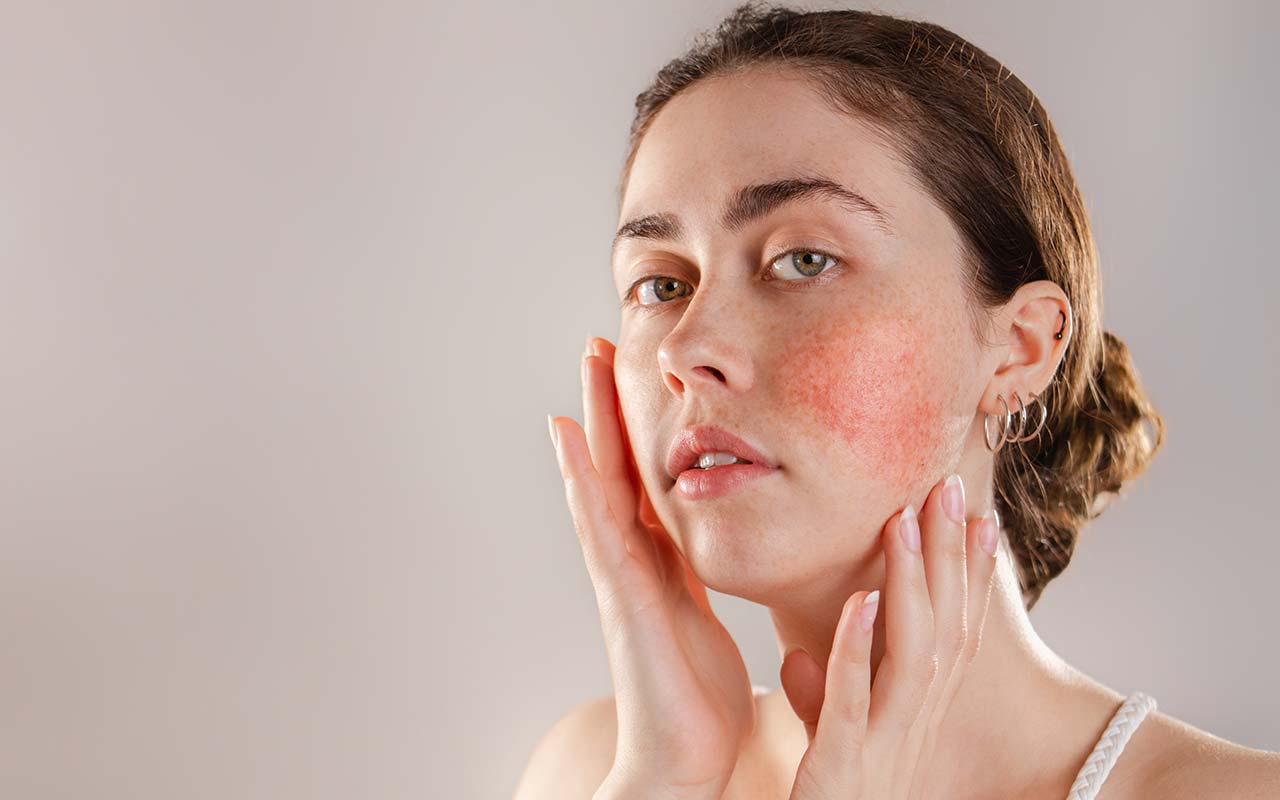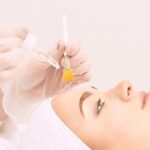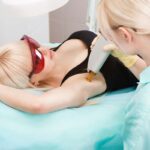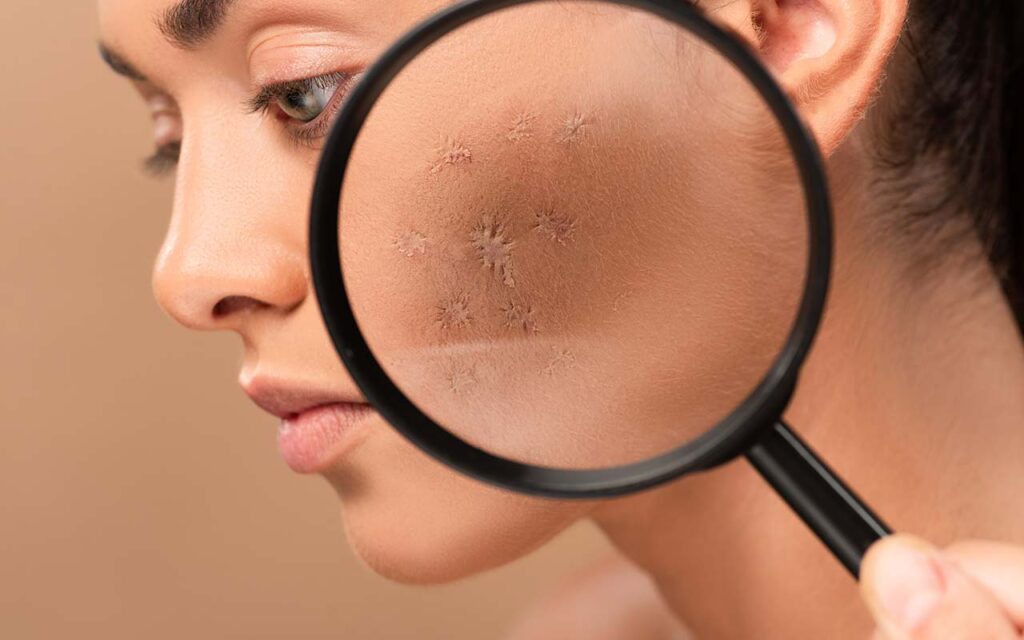Did you know that April is Rosacea Awareness Month? Unless you have the condition yourself – or know someone who does – chances are you’d be unawares.
And that’s why we wanted to bring it to your attention here at Vale Laser Clinic. Because those who have this chronic skin condition don’t have to suffer in silence, there are treatments that can help.
What is rosacea
Rosacea can result in a reddening of the face – whether in terms of flushing, blushing, or the blood vessels in the face becoming visible. It can be perceived as blushing, red cheeks from the weather or even acne since it can also result in small, pus-filled lumps. The point is, though, that rosacea is visible – often on the cheeks, forehead, chin and nose – and it’s this part of the condition that sufferers can often find intolerable.
There are actually two types of rosacea. The ‘blushing’ form is known as ‘vascular rosacea,’ while rosacea that results in inflammatory rosacea is known as pustular (or acne) rosacea.
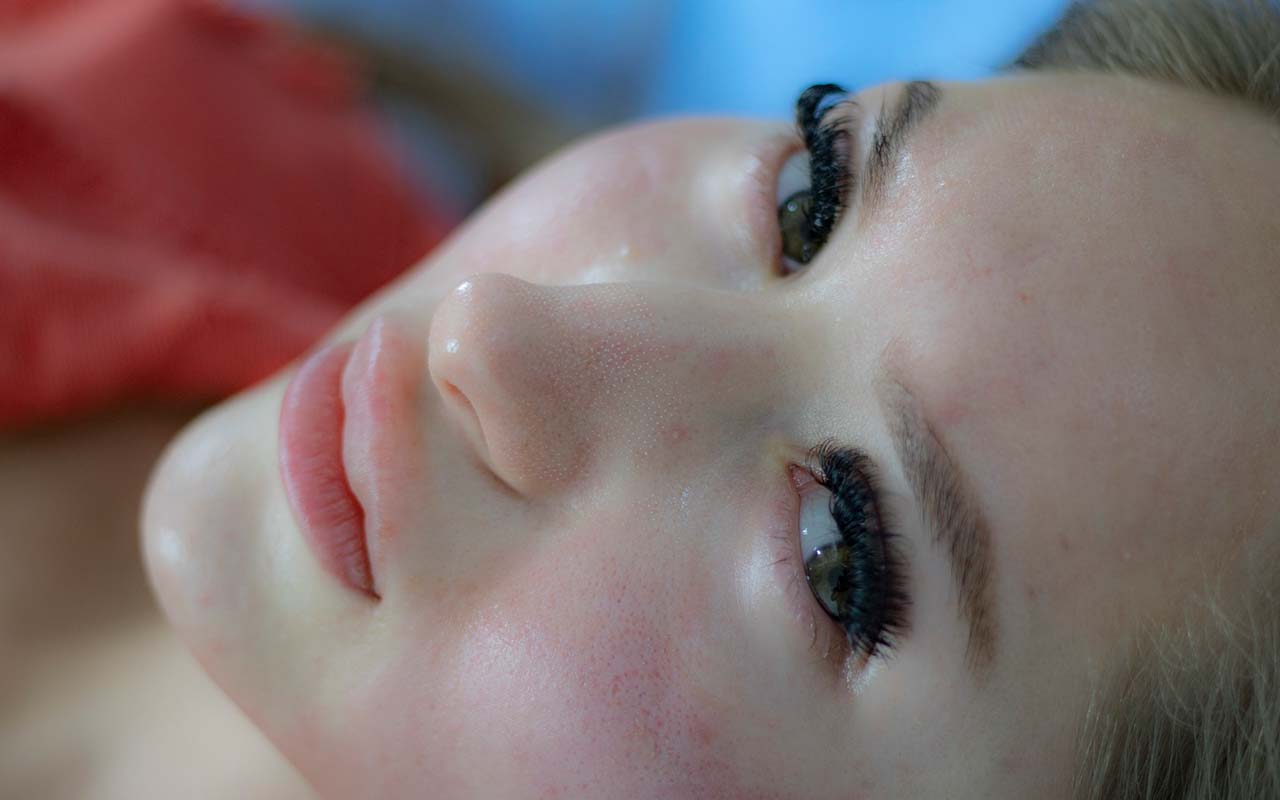
Who gets rosacea?
The condition tends to affect middle-aged white women most, although both sexes can be prone to it. And it can be worse in men. It usually hits for the first time at around the age of 30. At the last count, there were around 16 million Americans with rosacea – can we get british figure??. There’s no cure for the condition, but it can be managed.
Although redness is the most common symptom of rosacea, there are others. These include crusts around the eyelashes (also known as blepharitis), dry skin and even thick skin around the nose, causing it to look bulbous. There can also be orange-ish skin patches and a burning feeling on the face, especially when washing or applying products.
@Pharmacy_Times: “Recent rosacea studies have found that the condition can profoundly impact quality of life; an NRS survey of 1675 patients showed that 90% reported lowered self-confidence and self-esteem, while 52% said they had avoided face-to-face contact because of the disorder.”
How to manage rosacea
The condition can be managed by recognising its triggers and taking good care of your skin. Supplements can help too.
Triggers believed to exacerbate rosacea include alcohol, caffeine, hot drinks in general, spicy foods and cheese. It can also be affected by changes in temperature, with hot weather in particular. Running can be a trigger, too, as can hairspray. Meanwhile, getting stressed about it all doesn’t help either.
Skin treatments for rosacea
Here at Vale Laser Clinic, we treat a number of patients with rosacea – the majority on a long-term basis. That’s because the condition can flare up from time to time. We deal with it using an in-house clinictreatments, such as Alumier Peels, Intense Pulsed Light (IPL), and Dermalux LED light therapy. Homecare is critical to the long term management of Rosacea. We can advise the right skincare for your skin to keep it healthy and happy and minimise flareups.
Other treatments can involve your GP issuing you antibiotics for up to four months.
Sufferers of the skin condition should also administer a high-factor sunscreen (i.e. at least 30) daily.
Get in touch You can find out more about rosacea and how we can offer a personalised treatment plan for you.
